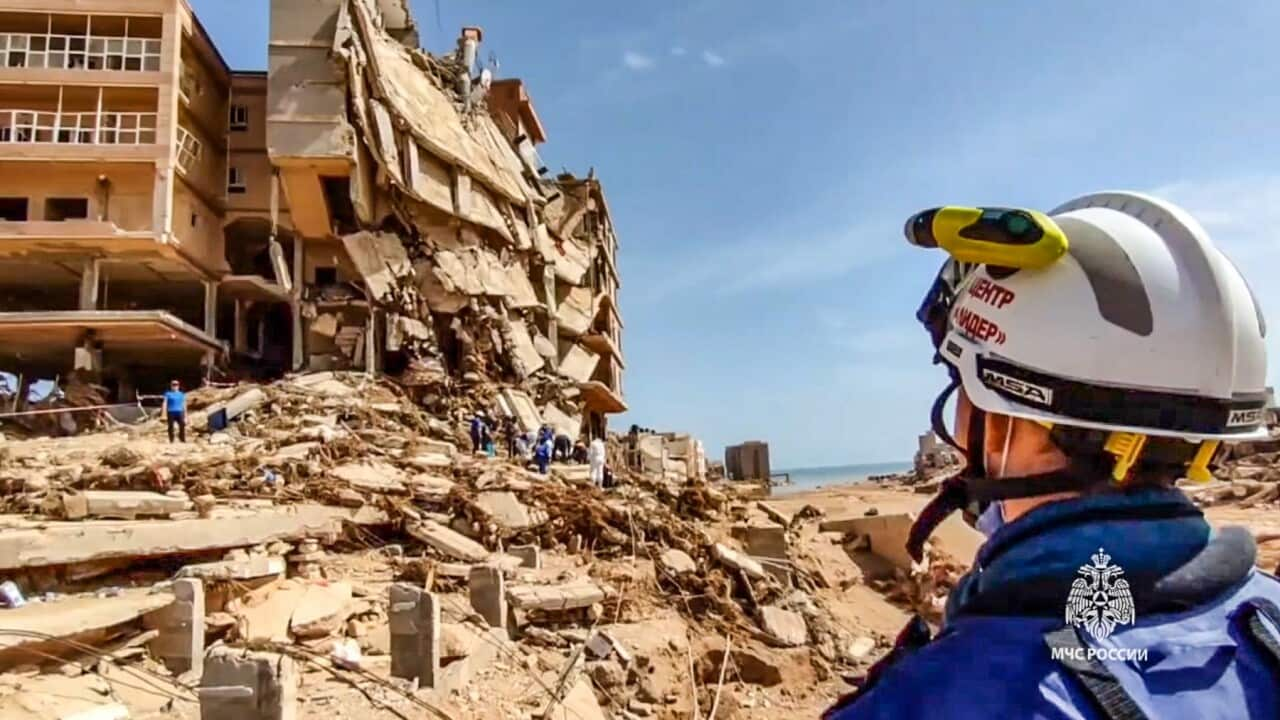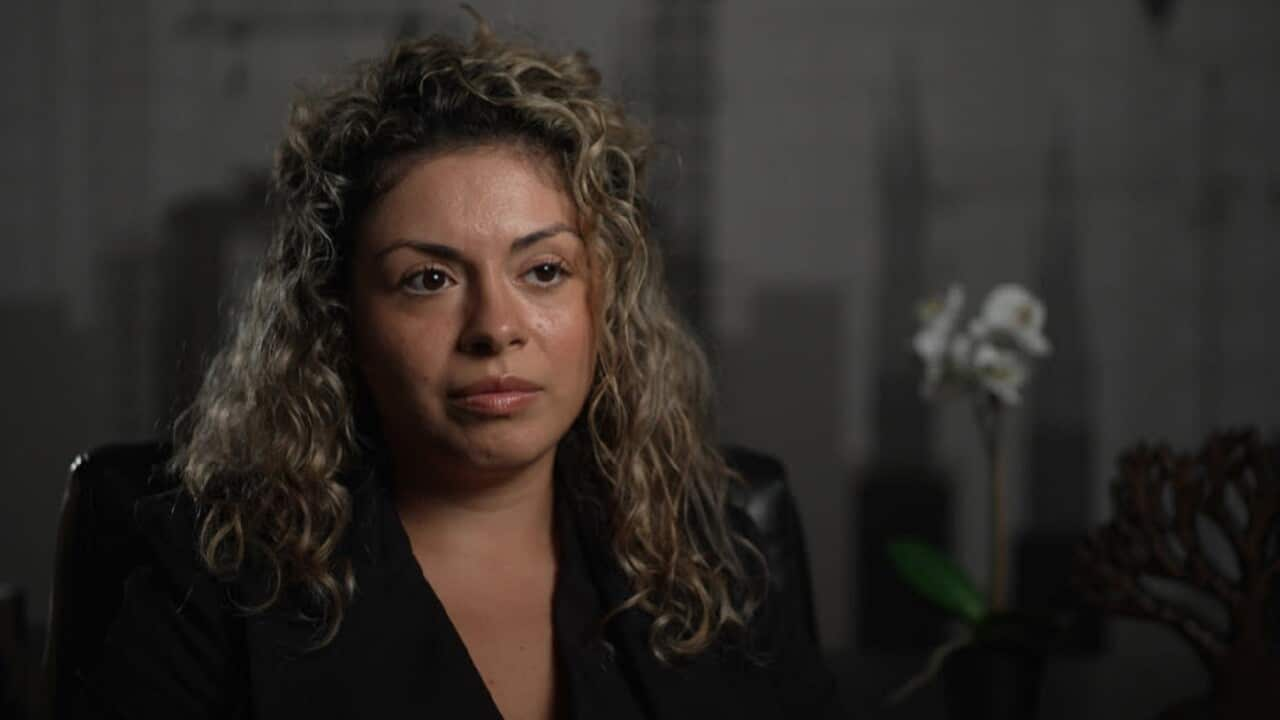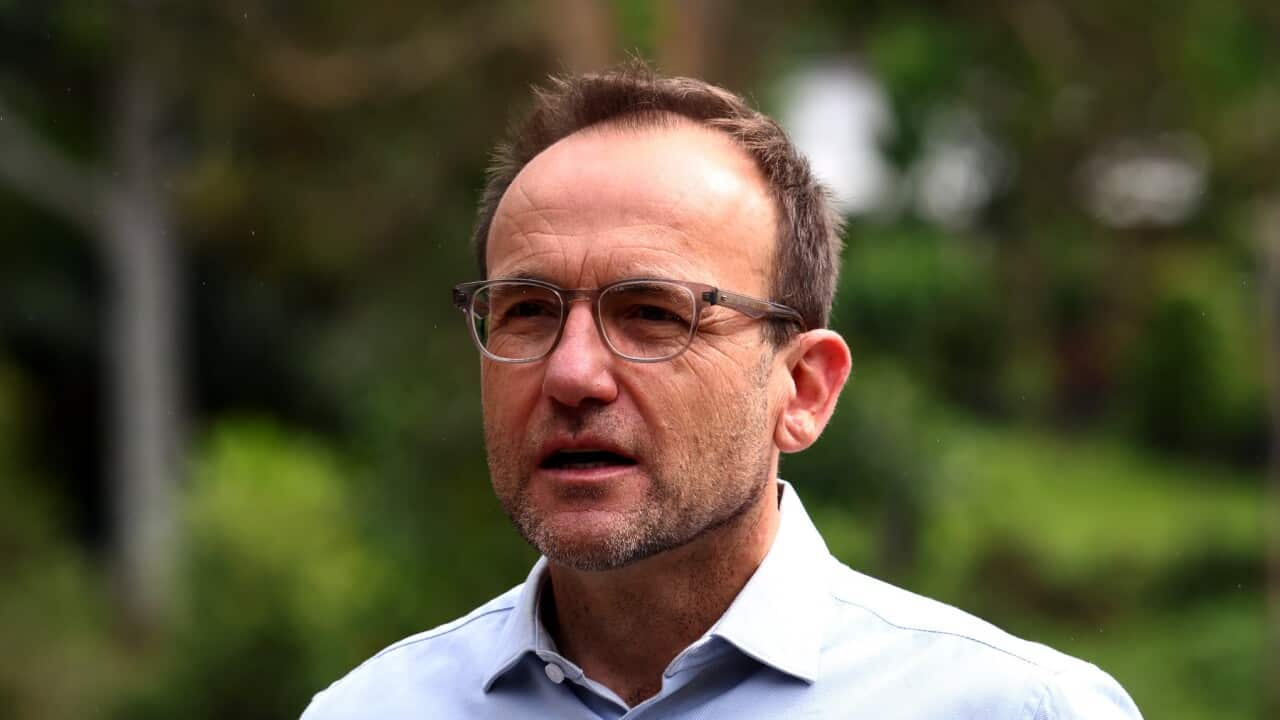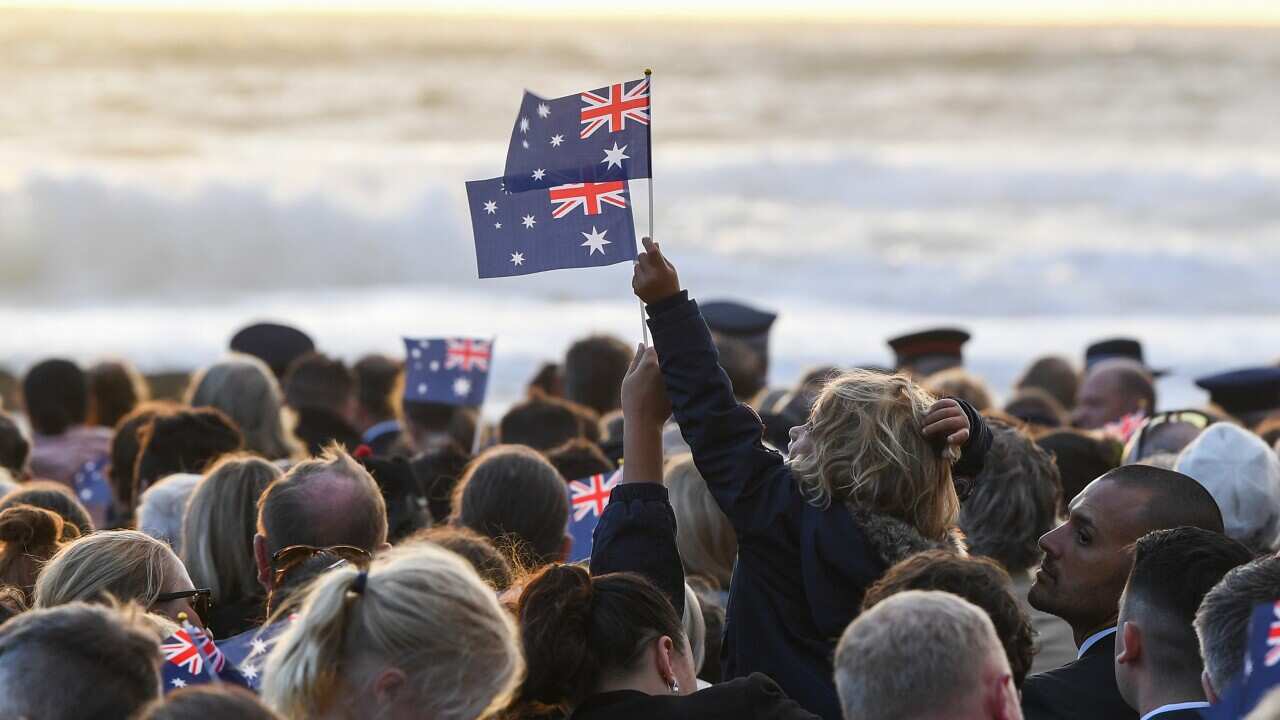TRANSCRIPT
Emergency workers in Libya have recovered a further 23 bodies in Derna.
Mohamed Al-Jarh is a spokesman for the Libyan government.
Arabic then vo: “Regarding today, the number of bodies that have been recovered and buried is 23 bodies in the city of Derna, bringing the total number to 3,868 documented cases with the Ministry of Health."
He also announced that two teams have been formed to speed up documenting missing individuals.
The first team will continue to document bodies recovered from the sea and the second will focus on retrieving bodies that were buried randomly at the beginning of the catastrophe.
Arabic then vo: “Two teams have been formed to speed up documenting missing individuals. The first team will continue to receive bodies recovered from the sea or other retrieval locations, and they will take the necessary measures for documentation and registration. This includes collecting samples as required, following the procedures of the public prosecution. The second team will focus on retrieving bodies that were buried randomly at the beginning of the crisis, collecting samples, documenting them, and adding them to the lists of missing individuals. This will facilitate the identification process using genetic fingerprint samples."
Heavy rain triggered deadly flooding across eastern Libya earlier this month.
The storm overwhelmed two dams in the first hours of the 11th of September sending a wall of water several metres high through the centre of Derna, destroying entire neighbourhoods and sweeping people out to sea.
The floods inundated as much as a quarter of the city, turning parts of the surrounding desert into a sea.
Thousands of people were killed, with many of the dead still under the rubble, or at sea.
Alaa Alfakhri is an anaesthesia technician from the city of Suluq and is part of a Red Crescent team providing help.
He says the situation in the city is tragic, with many decomposing bodies stuck under the rubble of buildings.
“As for the situation here in the city of Derna, it is still tragic. Very difficult situation. I don't know how to describe it to you. It's a tragic thing. There are still people under the rubble and decomposing bodies that are still stuck and no one can recover them. A tragic situation, I don't know how to describe it to you. All the people who came here gave their best but there are still deficiencies in so many things.”
Paramedic Muftah Alfakhri says he was surprised by the huge number of bodies.
“We saw an unimaginable number of corpses. We came here to find the situation like this. We, as a group of paramedics, discover at least 20 or 30 bodies every morning and we pull them out from under the buildings.”
He added first aid supplies and medicines they had brought with them ran out as they treated so many injured people, so they had to stop at a field hospital in the city to stock up on replacements.
Several local companies have begun spraying disinfectant in parts of Derna to prevent the risk of diseases spreading from the decomposing bodies and the stagnant pools of water.
Sami Zaptia is the Editor-in-Chief of the Libya Herald newspaper.
He told Al Jazeera Libyans want answers and accountability.
"People have lost 17, 18, 20 or more members of their family. They're now beginning to ask those critical questions. Why did the dams burst? Why were they not maintained? Who is responsible?"
Government officials and aid agencies have given varied death tolls ranging from about 4,000 to more than 11,000.
The floods caused widespread damage in Libya, affecting over a million people and leaving thousands homeless.
The government has been criticised for its slow response to the disaster, and some have accused it of trying to suppress coverage of the floods in order to avoid criticism.
Anas El Gomati is the Director of the Sadeq Institute.
The institute focuses on strategic issues in Libya, such as security, governance, economic, and foreign policy.
He spoke to Al Jazeera.
"They've actually shut down the internet from eastern Libya claiming through their media outlets that this was a separate cable in the city, when the reality is that sources in Tripoli from the Libyan telecommunications network have said that this was an ordered shut down by the authorities."
The United Nations says at least 40,000 people were displaced in the area, including 30,000 in Derna.
Many people have moved to other cities across Libya, hosted by local communities or sheltered in schools.













